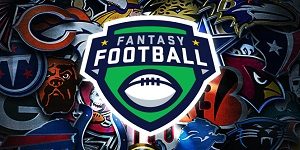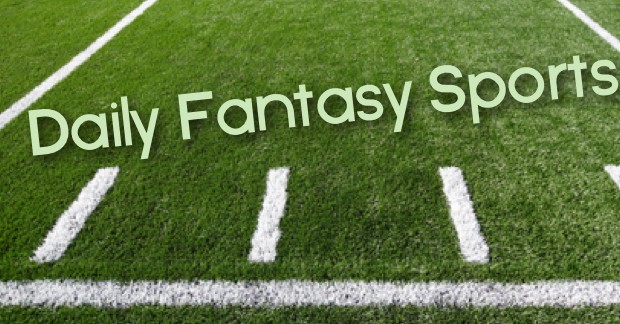The New York Supreme Court has handed down a ruling by Acting Justice Gerald Connolly stating that the state law on daily fantasy sports betting is unconstitutional as it is in violation of the state’s anti-gambling provision.
Daily fantasy sports have had a troubled history with New York.
 Back in 2015, New York state’s former Attorney General Eric Schniederman moved to shut down the fantasy sports industry by going after both FanDuel and DraftKings, which were forced to block their New York customers for a while, only to see the state legislature step in and decide to allow the contests a year later in a new law.
Back in 2015, New York state’s former Attorney General Eric Schniederman moved to shut down the fantasy sports industry by going after both FanDuel and DraftKings, which were forced to block their New York customers for a while, only to see the state legislature step in and decide to allow the contests a year later in a new law.
In light of this weeks new ruling, the states relationship to both sports betting and fantasy sports has been cast into doubt, even after the United States Supreme Court moved to overturn the Professional and Amateur Sports Protection Act (PASPA), which had outlawed sports betting, earlier this year.
The PASPA case, brought by the state of New Jersey after legislators there decided to allow sports betting, named Christi vs NCAA, centered on whether PASPA was constitutional in the face of a blanket ban on sports betting with four states: Nevada, Delaware, Oregon and Montana remaining exempt from the law.
After both the lower court and court of appeals ruled that PASPA should be allowed to stand, a landmark U.S. Supreme Court decision declared the 1992 law unconstitutional and in violation of states’ rights, de facto opening the flood gates on legalized sports betting across the nation, as the decision on whether to legalize sports betting would now be left to individual state legislatures.

Background
Fantasy sports betting came to prominence in the 1990s as an activity largely associated with stats nerds.
 By the time the internet came along in the 2000s sites such as DraftKings and FanDuel realized the massive revenue potential and got into the game, arguing that they were not betting sites and that the fantasy leagues and the prizes that came with winning were simply a form of entertainment.
By the time the internet came along in the 2000s sites such as DraftKings and FanDuel realized the massive revenue potential and got into the game, arguing that they were not betting sites and that the fantasy leagues and the prizes that came with winning were simply a form of entertainment.
In 2016, a new law in the Empire State defined daily fantasy sports competitions as games of skill.
At the same time, anti-gambling lobbyists who defined themselves as a group of “citizen taxpayers” concerned about the ill effects of gambling and gambling addiction, argued that the “material” degree of chance in daily fantasy sports meant that the legislature could not pass a law allowing such activities without voters’ consent.
As an end around to this issue, the legislature simply defined the contests as one of skill, claiming that then no change to the state’s constitution would be necessary.
Opponents, on the other hand, argued that the state would need to change its constitution for the games to be allowed just as it had when moving to allow land-based casino gambling in upstate New York a number of years earlier.
The resolution of the conflict was the New York Gaming Development Act of 2013, which pulled down the support of 57% of voters, allowing the governor to sign the bill into law the following year and opening the doors to daily fantasy sports.
In a bit of wise foresight, the law also contained a provision that allows for sports betting, activated once the U.S. Supreme Court clarified in the PASPA case that individual states have the right to legalize, sanction and/or regulate sports betting as they please.
In light of the recent ruling, DraftKings, which is based out of Boston, was relatively optimistic, pointing to the fact that the judge acted in the industries favour in declaring that daily fantasy sports were “predominated by skill rather than chance”, which had ben the industry’s argument all along.
“We are pleased that the court upheld the New York legislature’s decision to decriminalize daily fantasy sports contests and that DraftKings can continue to offer their services to players,” DraftKings outside counsel David Boies said in a statement. “We are continuing to study the court’s decision invalidating the regulatory structure and are committed to working with the legislature.”
FanDuel, which had an estimated 600,000 customers in New York as of a 2015 court filing, also commented, “The decision makes clear that the New York legislature’s decision to exclude fantasy contests from the definition of illegal gambling cannot be challenged in court. Accordingly, we will continue to offer fantasy sports to New Yorkers. We also believe in the benefits of regulation and will cooperate with efforts to permanently restore regulatory oversight.”
What’s next?
The decision can still be challenged on appeal, which many industry watchers say is highly likely. Moreover, there is always the possibility that both operators would partner to file a state-level challenge. The daily fantasy sports industry currently brings in approximately $5 million in tax revenues to New York state, and both operators have long established relationships with various New York sports teams.
 At the same time, the state legislature will need to pass a new sports betting law in light of this year’s U.S. Supreme Court decision, specifically defining how legalized sports betting will be implemented.
At the same time, the state legislature will need to pass a new sports betting law in light of this year’s U.S. Supreme Court decision, specifically defining how legalized sports betting will be implemented.
The state’s 2013 constitutional amendment that allowed for land-based casinos in up state New York provides no regulatory clarity on internet based and mobile sportsbooks.
Mobile sports betting currently makes up more than half of all sports betting revenue generated in neighbouring New Jersey.
In fact, the New York Senate has already approved model online poker legislation, but the bill was struck down in the full assembly. With a sports betting market estimated to be worth $150 billion nationwide, and states hungry for tax revenue, New York lawmakers are not likely to drop the ball on the issue.
In terms of the worst-case scenario, the new ruling could lead to Fan Duel and DraftKings shuttering their New York operations according to a report in the Buffalo Times.
For now, the offices of both the Governor Andrew Cuomo and the New York Gaming Commission are reviewing the ruling and the state’s Attorney General, Barbara Underwood, the office with the power to shut down the platforms, has deferred the issue to the Gaming Commission.
Furthermore, DraftKings has stated that while the ruling invalidates daily fantasy sports regulatory structure, sports betting has already been decriminalized and is likely to continue.












